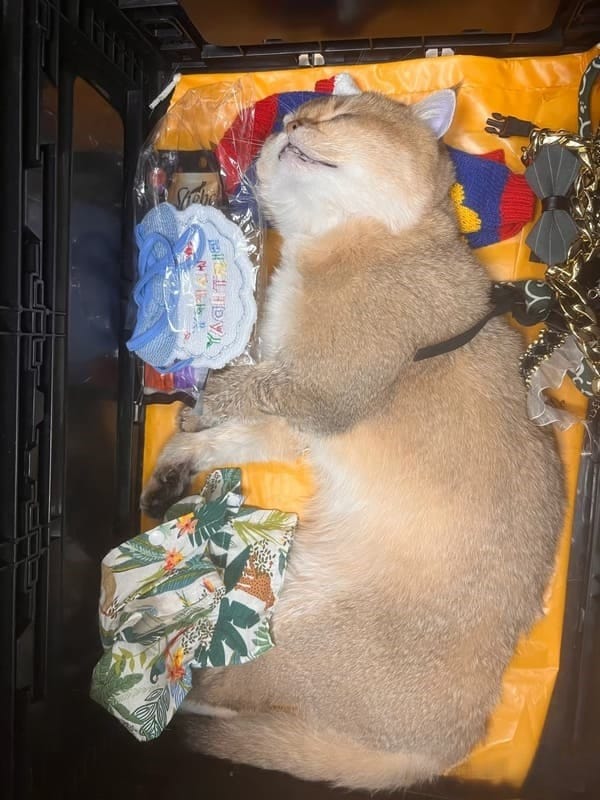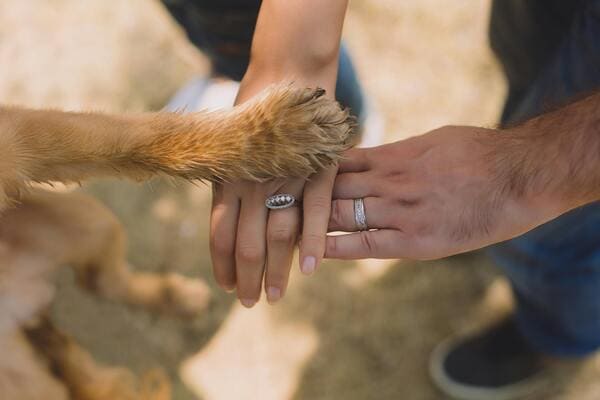Almost everyone who has lost a pet experiences some form of guilt. Whether it’s questioning if you could have done more, wondering if you made the right decisions, or feeling responsible for not noticing symptoms earlier – these feelings are a natural part of the grieving process. Through supporting numerous pet parents in our community, we’ve learned that guilt is often the most challenging emotion to overcome.
How to deal with the guilt of losing a pet
Understanding Pet Loss Guilt
“I should have noticed sooner…” “If only I had taken them to the vet earlier…” “I shouldn’t have let them sleep on the porch…” These thoughts might be running through your mind right now. The weight of these “what-ifs” and “should-haves” can feel overwhelming, but it’s important to understand that these feelings are a natural reaction to loss.
My next-door neighbor Sarah, who lost her cat Max after he escaped through an open window one night, knows this feeling all too well. We often shared pet stories over the fence, and she confided in me, “I keep thinking if I had just double-checked all the windows before going to bed, he would still be here.” Even two months later, while watching her remaining cats play in her backyard, she still struggles with that night’s memory.

Common Self-Blame Scenarios
Many pet parents find themselves replaying certain moments over and over:
- Not recognizing symptoms early enough
- Choosing or delaying euthanasia
- Being away when it happened
- Making different treatment choices
- Financial limitations affecting care decisions
If you’re experiencing any of these thoughts, remember that hindsight is 20/20. In the moment, you made the best decisions you could with the information you had available.
The Truth About Pet Care Decisions
The reality is that we can’t control everything, even though we wish we could. Jennifer, a member of our local pet loss support group, lost her cat Charlie to kidney failure last year. During our weekly meetings, she opened up about her journey: “I couldn’t look at his photos for the first month. I felt so guilty about not recognizing the symptoms earlier. But after joining this group and hearing similar stories from other members, I slowly began to forgive myself. It took about six months before I could look at his pictures and smile instead of cry.”

When your pet died, you were likely experiencing any combination of shock, grief, fear, and confusion. These intense emotions can make it difficult to think clearly or make decisions. Remember that you made choices based on what you knew at the time, with your pet’s best interests at heart.
Healing Activities That Can Help
- Creating a Memorial Space
One of the most therapeutic ways to work through guilt is to create a positive space for remembrance. Tom, a regular client at our local veterinary clinic, found peace by creating a memorial garden after losing his dog Luna to cancer. “I planted Luna’s favorite sunflowers – she used to love lying in our garden under them. Now whenever they bloom, I feel she’s still with me in some way.”

Looking for garden memorial ideas? We’ve compiled 20 Best Cat Memorials for Your Garden that can help you create a beautiful tribute to your companion.
- Wearing Memorial Jewelry
Many find comfort in keeping their pet’s memory close to their heart – literally. Explore our collection of 30 Best Cat Memorial Gift Ideas to find a meaningful way to carry your pet’s memory with you. - Creating a Memory Wall
Consider creating a special space with framed photos and memories. Our guide to the Best Memorial Gifts for Loss of Cat can help you choose the perfect frame to showcase your precious memories. - Finding Words for Your Feelings
Sometimes, others have already found the perfect words to express what we’re feeling. Take comfort in our collection of 40 Heartwarming Cat Memorial Quotes, Sayings and Poems to Remember Your Beloved Pet.
Moving Forward with Love
Healing doesn’t mean forgetting. It means learning to hold onto the love while letting go of the guilt. Consider these steps:
- Make a list of all the good things you did for your pet
- Focus on the happy memories you shared
- Think about how your pet enriched your life
- Consider ways to honor their memory by helping other animals
When to Seek Additional Support
If you find that your guilt is overwhelming and interfering with your daily life, it’s okay to seek professional help. Many therapists specialize in pet loss and can help you work through these feelings. Your veterinarian may also be able to recommend pet loss support resources.
Finding the Right Support
Support can come in many forms:
- Pet Loss Support Groups
- Online communities
- Local meet-up groups
- Social media support groups
- Veterinary hospital grief groups
- Professional Counseling
- Grief counselors specializing in pet loss
- Online therapy services
- Support hotlines
- Veterinary social workers
- Personal Support Network
- Understanding friends and family
- Other pet parents
- Online forums and communities
- Pet loss support websites
A Final Note
Remember that guilt is often a reflection of the deep love we had for our pets. If you didn’t care so much, you wouldn’t feel this way. Your pet gave you the gift of their unconditional love – try to show yourself the same compassion they would show you.
Take it one day at a time, and know that somewhere, your beloved pet is at peace, remembering not the last difficult moments, but all the love and joy you shared together.
Resources for Additional Support:
- The Association for Pet Loss and Bereavement (APLB)
- Pet Loss Support Hotlines
- Online Pet Memorial Websites
- Local Pet Loss Support Groups
Remember, healing is possible, and you don’t have to walk this journey alone.




